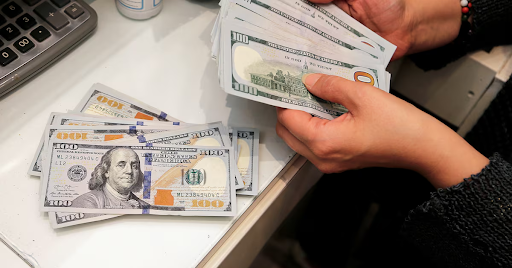
Navigating the world of currency exchange can be a daunting task, especially when dealing with the intricacies of the Canadian market. Whether you're traveling to Canada, relocating, or making purchases from a Canadian retailer, understanding how to maximize your currency exchange experience is essential. This blog aims to provide you with essential tips for Canada currency exchange, ensuring you get the most value for your money.
Understanding Currency Exchange
Currency exchange is the process of converting one currency into another. The value of currencies fluctuates based on various factors, including economic indicators, market demand, and geopolitical events. To make the most of your currency exchange experience, it's crucial to grasp the fundamentals of how these factors impact exchange rates.
Before exchanging your currency, research the current money exchange rate in Canada. Exchange rates vary between financial institutions, so knowing the average rate will give you a benchmark. Many online platforms provide real-time updates on currency rates, allowing you to compare rates from different sources.
What Are The Tips For Canada Currency Exchange?
Choose the Right Time to Exchange
Timing can significantly influence the amount you receive when exchanging currency. Currency values fluctuate daily, and even hourly. Keep an eye on market trends to identify when rates are in your favor.
Monitor Economic Indicators: Pay attention to economic reports, such as employment data, inflation rates, and interest rate changes, which can influence currency value.
Avoid Last-Minute Exchanges: If you're planning to travel, avoid exchanging currency at the airport or during high-demand periods, as these locations often offer less favourable rates.
Explore Different Exchange Options
There are several options available for exchanging currency, each with its advantages and disadvantages:
Banks: Traditional banks typically offer reliable currency exchange services. While they often have competitive rates, be aware of additional fees that may apply.
Currency Exchange Offices: Specialized currency exchange services may offer better rates than banks. However, it’s essential to check their reputation and fee structure before proceeding.
Online Currency Exchange Platforms: With the rise of digital finance, many online platforms allow you to exchange currencies at competitive rates. These services often charge lower fees than physical locations, making them a convenient option for many consumers.
ATMs: Withdrawing cash directly from ATMs in Canada can also be a good option. Check with your bank about international withdrawal fees and the exchange rates they offer.
Understand Fees and Charges
When exchanging currency, it's essential to be aware of any fees or commissions that may apply. These costs can significantly impact the total amount you receive. Here are a few common fees to consider:
Service Fees: Many banks and exchange offices charge a flat service fee for currency exchanges. This fee can vary widely, so it’s worth shopping around.
Markup on Exchange Rates: Some institutions may offer a rate that is less favourable than the market rate. Always compare the offered rate with the current market rate to ensure you’re getting a fair deal.
International Transaction Fees: If you’re using a debit or credit card for purchases in Canada, your bank may charge an international transaction fee. Check with your bank for their policy on foreign transactions.
Use Cash Wisely
While digital payments are increasingly popular, having cash on hand can be beneficial, especially in Canada, where some smaller businesses may not accept cards. Here are some tips for using cash effectively:
Breakdown of Currency: When exchanging cash, try to get a mix of denominations. Having smaller bills can be helpful for tipping or small purchases.
Safe Storage: Carrying a significant amount of cash can be risky. Consider using a money belt or a secure wallet to keep your cash safe while travelling.
Utilize Currency Converter Apps
Technology has made it easier to stay informed about exchange rates and manage your currency exchanges. Downloading a currency converter app on your smartphone can help you stay updated on the current Canadian currency exchange rates. Many of these apps also provide historical data, allowing you to analyze trends over time.
Plan for the Future
If you anticipate needing to exchange currency regularly, consider setting up a currency exchange plan. This might involve:
Setting Alerts: Many financial apps allow you to set alerts for specific exchange rates. This way, you’ll be notified when rates are favourable.
Dollar-Cost Averaging: If you're making large purchases or investments, consider exchanging currency gradually over time rather than all at once. This strategy can help mitigate the risk of unfavourable rate fluctuations.
Conclusion
Understanding the nuances of Canada currency exchange is crucial for maximizing the value of your money. By knowing the current money exchange rate in Canada, choosing the right time and method for exchanging currency, and being aware of fees and potential scams, you can ensure that you get the most out of your currency exchange experience.







Write a comment ...